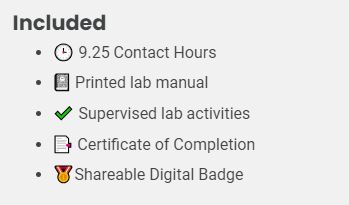Pelvic Health Physical Therapy Level 2 Lab
Eligibility Requirement
- Licensed Physical Therapist (PT)
- Licensed Physical Therapist Assistant (PTA)
- 2nd Year Physical Therapy Student (SPT)
- 3rd Year Physical Therapy Student (SPT)
- No other professional types are permitted for this course. No exceptions will be made.
Prerequisites
- Successful completion of the PH1 Webinar + PH1 Lab (or PH1 Combined), PH2 Bowel Dysfunction Webinar, PH2 Pelvic Pain Webinar
- We recommend students have some orthopedic and musculoskeletal coursework in their curriculum before attending the course.
Overview

Course participants of all genders may be present in the room during the completion of examinations. Please see the Requirements regarding lab participation expectations and model instructions.
Lab Overview
- Infection control
- Rectal exam
- Biofeedback
- Balloon lecture/hands-on lab
- Pelvic manual therapy lab
- Summative skills assessment
Learning Objectives
Examination / Evaluation
- Describe the anatomic, physiologic, and neurological components of defecation and dysfunctional defecation.
- Perform an appropriate evaluation of a patient with bowel disorder diagnoses to include fecal and anal incontinence, irritable bowel syndrome, constipation, and obstructed defecation.
- Demonstrate ability to perform rectal pelvic floor muscle examination for patients with bowel dysfunction.
- Assess coccygeal function and joint mechanics for pelvic pain or bowel dysfunction patients.
- Describe the anatomic, physiologic, and neurological components of pelvic pain diagnoses.
- Perform an appropriate evaluation of a patient with pelvic pain diagnoses to include pudendal neuralgia, vulvodynia, vaginismus, painful bladder syndrome, endometriosis, and coccydynia.
- Demonstrate ability to perform a vaginal pelvic floor muscle examination for patients with pelvic pain diagnoses.
- Describe the female sexual response and demonstrate an understanding of sexual dysfunction.
Diagnosis / Prognosis
- Differentiate between musculoskeletal impairments related to bowel dysfunction and signs and symptoms associated with non-musculoskeletal pathology requiring further medical examination.
- Develop functional goals for musculoskeletal impairments identified in patients with bowel disorders based on a systematic interview and patient examination.
- Demonstrate understanding of colon and anorectal function testing for bowel disorders.
- Differentiate between musculoskeletal impairments related to pelvic pain and signs and symptoms associated with non-musculoskeletal pathology requiring further medical examination.
- Develop functional goals for musculoskeletal impairments identified in patients with pelvic pain based on a systematic interview and examination of the patient.
Intervention
- Develop an evidence-based and appropriate plan of care for physical therapy intervention of musculoskeletal impairments for patients with bowel dysfunction.
- Perform manual myofascial release techniques, trigger point release techniques, and coccyx mobilization to treat patients with bowel dysfunction.
- Describe and perform appropriate clinical application of surface electromyographic (sEMG) biofeedback for bowel dysfunction diagnoses.
- Describe and perform appropriate clinical application of digital and rectal balloon biofeedback as an intervention for patients with bowel dysfunction.
- Provide behavioral intervention strategies to improve bowel function, such as diet, lifestyle changes, proper toileting techniques, and posture.
- Develop an evidence-based and appropriate plan of care for physical therapy intervention of musculoskeletal impairments for patients with pelvic pain.
- Perform manual myofascial release techniques, trigger point release techniques, and abdominopelvic interventions for the treatment of patients with pelvic pain.
- Describe appropriate clinical application of modalities for pelvic pain diagnoses.
- Perform external manual therapy techniques and rigid taping techniques to address pain and dysfunction related to the coccyx.
- Provide behavioral intervention strategies to manage pelvic pain, including lifestyle changes, diet, and proper posture.
Instructor

Carina Siracusa, PT, DPT
Board Certified Women’s Health Clinical Specialist
Registration
Des Moines University’s campus, located at 8025 Grand Avenue in West Des Moines, Iowa, offers an impressive 88 acres, providing ample space for growth and innovation. State-of-the-art facilities cater to the evolving needs of students and faculty, fostering an exceptional learning and research environment.
Available Credit
- 9.25 CE Contact Hour(s)

 Facebook
Facebook X
X LinkedIn
LinkedIn Forward
Forward


